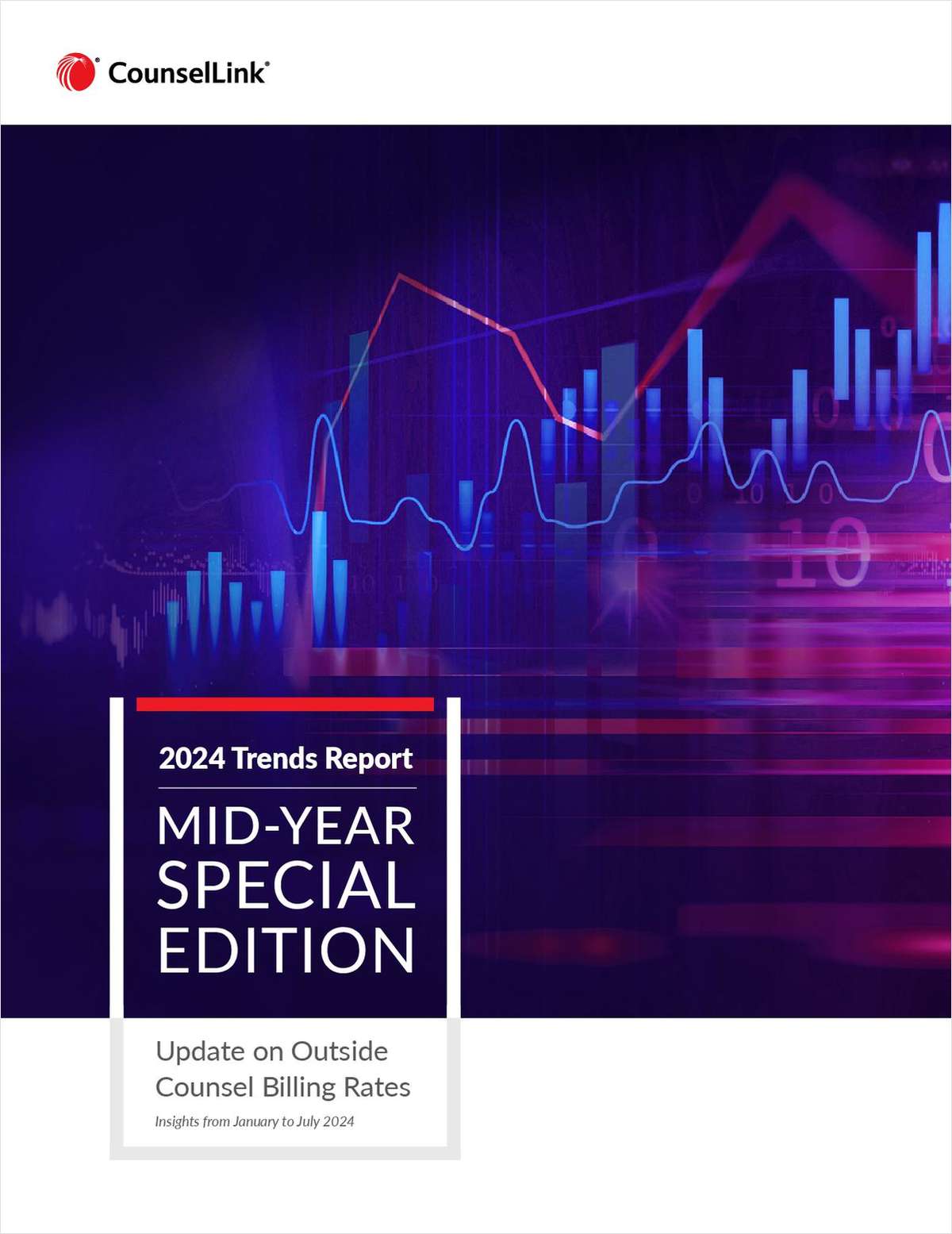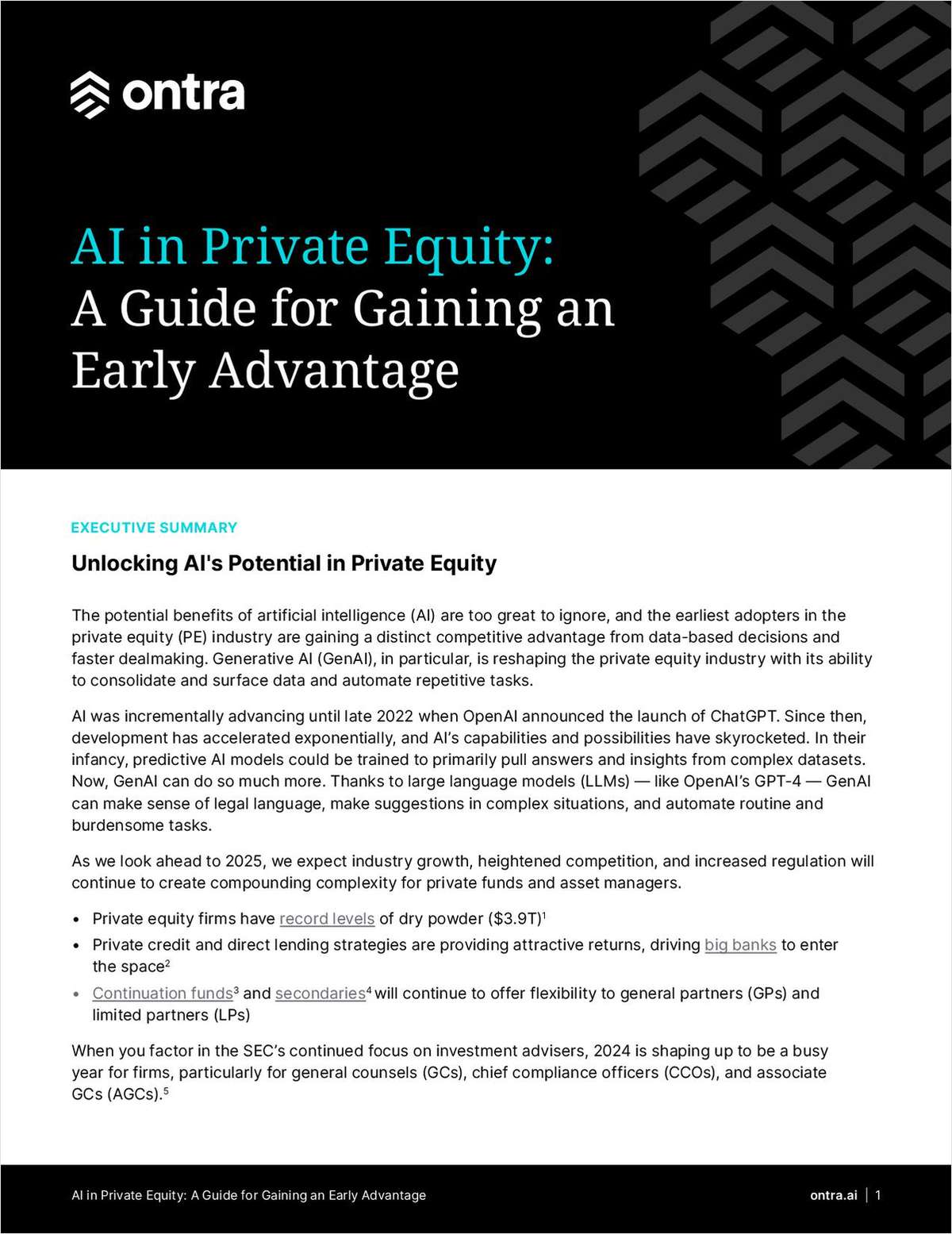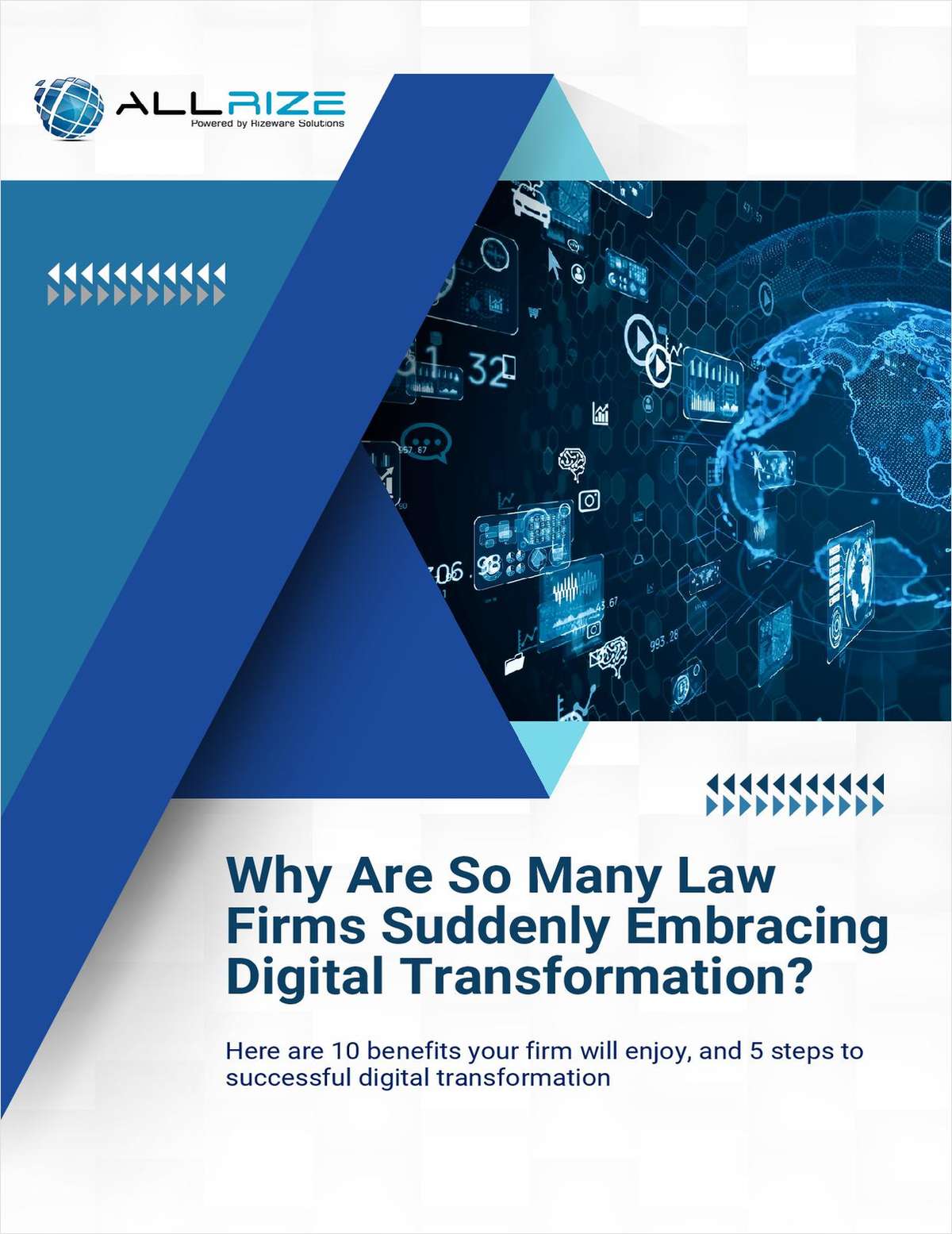Judge Blasts Uber's 'Jaw-Dropping' Waiver of In-House Privilege in Waymo Feud
A federal magistrate judge on Wednesday blew up Uber's latest gambit in its trade secret dispute with Google over driverless car technology.…
August 11, 2017 at 06:34 AM
6 minute read
The original version of this story was published on Law.com
A federal magistrate judge on Wednesday blew up Uber's latest gambit in its trade secret dispute with Google over driverless car technology. And she brought out heavy artillery to do it.
Calling Uber Technologies Inc.'s tactic “incredible,” “astounding,” “jaw dropping” and more of a stretch than Flubber, U.S. Magistrate Judge Jacqueline Corley said she believed that former CEO Travis Kalanick should be blocked from testifying about a March 29 discussion he had with former employee Anthony Levandowski and Uber litigation chief Angela Padilla.
Uber wants to waive attorney-client privilege for that conversation, in which Kalanick and Padilla say Levandowski admitted downloading Google files—not to advance Uber's driverless car business, but to prove he'd earned a bonus that Google had promised him. At the same time, Uber wants to preserve the privilege for other meetings involving Kalanick, Levandowski and Padilla—including two held the same day.
Corley, who is managing discovery for U.S. District Judge William Alsup ahead of an October trial, told Uber attorney Karen Dunn of Boies Schiller Flexner that isn't going to fly. “Whenever you want it to be privileged it's privileged, and when you don't you don't. That's what it looks like in spades, Ms. Dunn,” Corley said.
RELATED COVERAGE: Uber's Former CEO's Deposition Shows In-House Lawyers' Involvement in Waymo Battle MoFo Gets Unwelcome Spotlight in Waymo-Uber Case Orrick Steps In for Kalanick Ahead of Waymo Deposition
Dunn argued that Padilla was not providing legal advice at the meeting in question, but acting “as a person of comfort” for Kalanick in a business discussion. It's a role Padilla played frequently at the company, Dunn said. “Sometimes there are business objectives and sometimes [Uber's lawyers] are called for litigation advice,” she said. Under case law, attorney-client privilege is triggered only when the lawyer's primary purpose is legal advice, Dunn stressed.
Corley said she was astonished Uber would take such a position because of the Pandora's box it could open. “That's a dangerous argument because Uber is in a lot of litigations,” Corley said. “I really wonder if they've thought this argument through.
|FLURRY OF MEETINGS
The meetings in question occurred March 29. That was one month after Google and its driverless car subsidiary Waymo filed its lawsuit accusing Levandowski of downloading 14,000 files from Google servers and taking them to his new job running Uber's driverless car division. Earlier that day, Alsup had held an in-chambers hearing where attorneys for Levandowski first announced he intended to invoke his Fifth Amendment right against self-incrimination.
Afterward, Padilla and Kalanick met with Uber's then-general counsel, now chief legal officer, Salle Yoo, other Uber executives and Levandowski. The group reviewed the hearing transcript and discussed its implications. Padilla stated in a declaration that she considers that discussion privileged because she offered legal advice on those issues.
Then Padilla, Levandowski and Kalanick met alone in a different conference room. Kalanick pressed Levandowski on what happened at Google, Padilla stated in her declaration. Levandowski explained that he'd downloaded the files so he could prove to Google he'd earned his bonus. Kalanick has testified that he told Levandowski that was “f'ing dumb” and that he should explain it to Alsup.
“I recall saying to Mr. Levandowski that while I could not provide him any legal advice, I agreed he should just tell the court what he did,” Padilla stated in her declaration. She said she did not consider that conversation privileged because she wasn't providing legal advice.
Finally, Kalanick and Padilla met with Levandowski and his personal lawyers later that day to try to persuade him to testify. Levandowski's lawyers invoked the common interest agreement between Uber and Levandowski; therefore, Padilla said, she was obliged to keep those discussions confidential.
“Why is the head of Uber's litigation in that meeting?” Corley asked Dunn on Wednesday, referring to the second meeting. “She was there to do what?”
When Dunn hesitated for a few seconds, Corley jumped back in. “You can't answer because of course she was there as Uber's in-house counsel.
|REVOKING THE WAIVER
Corley said it was clear Padilla was gathering facts related to the litigation, hearing an Uber executive's concern about incriminating himself, and then advising him to take action that furthered Uber's legal interest.
“Ms. Dunn, you must know how this looks,” Corley said. She said Uber had made “a strategic decision that Mr. Kalanick would be allowed to testify to that conversation and no other.”
Dunn argued that any waiver had been inadvertent and based on a good faith belief that the conversation was privileged, leading Corley to again put the attorney on the spot.
“Do you want to take the waiver back then?” she asked. “I'll give you that choice. Right now. And then the statements won't come in.”
When Dunn didn't immediately respond, Corley declared, “It's no longer inadvertent. It's an intentional waiver.”
Quinn Emanuel Urquhart & Sullivan partner Charles Verhoeven argued for Google that Uber has now waived attorney-client privilege for any discussions Kalanick had with Levandowski about why he downloaded the files, why he's pleading the Fifth and how Levandowski responded to Kalanick.
Corley agreed. But “the rub,” she said, is that Uber can't legally waive Levandowski's Fifth Amendment right. Assuming Levandowski continues to assert it, Google still can't get at that information, Corley said.
She said the wavier should cover all of the conversations Kalanick and Levandowski had with counsel or none of them. “If everything Mr. Levandowski told Uber comes in, then fine,” she said, but Uber cannot be selective.
Scott Graham writes about intellectual property and the U.S. Court of Appeals for the Federal Circuit. Contact him at [email protected]. On Twitter: @ScottKGraham
This content has been archived. It is available through our partners, LexisNexis® and Bloomberg Law.
To view this content, please continue to their sites.
Not a Lexis Subscriber?
Subscribe Now
Not a Bloomberg Law Subscriber?
Subscribe Now
NOT FOR REPRINT
© 2024 ALM Global, LLC, All Rights Reserved. Request academic re-use from www.copyright.com. All other uses, submit a request to [email protected]. For more information visit Asset & Logo Licensing.
You Might Like
View All
'The Unheard of Superpower': How Women's Soft Skills Can Drive Success in Negotiations

Georgia July Bar Exam Results: Highest Overall Passing Rate in 10 Years

Elder Litigators Confront Tough Questions in Last Act of Careers

The 'Biden Effect' on Senior Attorneys: Should I Stay or Should I Go?
9 minute readTrending Stories
Who Got The Work
Christopher J. DeGroff, Andrew L. Scroggins and Samantha L. Brooks from Seyfarth Shaw have stepped in to represent AG Equipment Company in a pending lawsuit over alleged employment discrimination under the ADA. The case was filed Aug. 30 in Oklahoma Northern District Court by the Equal Employment Opportunity Commission on behalf of five former employees who contend that they were wrongfully terminated after seeking accommodations from the defendant's COVID-19 vaccine mandate. The case, assigned to U.S. District Judge Sara E. Hill, is 4:24-cv-00403, Equal Employment Opportunity Commission v. AG Equipment Company.
Who Got The Work
Samantha J. Hughes of Dykema Gossett has entered an appearance for Home Depot in a pending slip-and-fall personal injury lawsuit. The suit was filed Aug. 30 in California Central District Court by Countrywide Trial Lawyers on behalf of Ernestina Rolon. The case, assigned to U.S Magistrate Judge Karen L. Stevenson, is 2:24-cv-07451, Ernestina Rolon v. The Home Depot, Inc. et al.
Who Got The Work
R. Evan Jarrold and Latiqua M. Liles of Constangy, Brooks, Smith & Prophete have entered appearances for Walmart in a pending lawsuit for alleged breaches of the Family and Medical Leave Act. The complaint was filed Aug. 30 in Missouri Eastern District Court by Roberts, Wooten & Zimmer on behalf of a former Walmart employee who contends that he was wrongfully terminated for taking medical leave after contracting COVID-19. The case, assigned to U.S. District Judge Matthew T. Schelp, is 4:24-cv-01196, Weber v. Walmart, Inc.
Who Got The Work
Nelson Mullins Riley & Scarborough partner Molly Jean Given has entered an appearance for CooperCompanies, a medical device maker comprised of CooperVision and CooperSurgical, in a pending product liability lawsuit. The case, filed Aug. 27 in California Northern District Court by Girard Sharp and Sauder Schelkopf LLC, is part of a wave of cases brought on behalf of plaintiffs whose embryos failed to develop during in-vitro fertilization due to alleged contamination of the defendant's embryo culture media lots. The case, assigned to U.S. District Judge Jon S. Tigar, is 4:24-cv-06047, I.I. et al v. CooperSurgical, Inc. et al.
Who Got The Work
Jacob Oslick of Seyfarth Shaw has entered an appearance for Prudential Insurance Co. of America in a pending ERISA lawsuit. The complaint, which pertains to short- and long-term disability benefits, was filed Aug. 29 in Pennsylvania Eastern District Court by the Cornerstone Law Firm on behalf of Catherine Alunni. The case, assigned to U.S. District Judge John M. Gallagher, is 5:24-cv-04547, Alunni v. The Prudential Insurance Company Of America.
Featured Firms
Law Offices of Gary Martin Hays & Associates, P.C.
(470) 294-1674
Law Offices of Mark E. Salomone
(857) 444-6468
Smith & Hassler
(713) 739-1250








